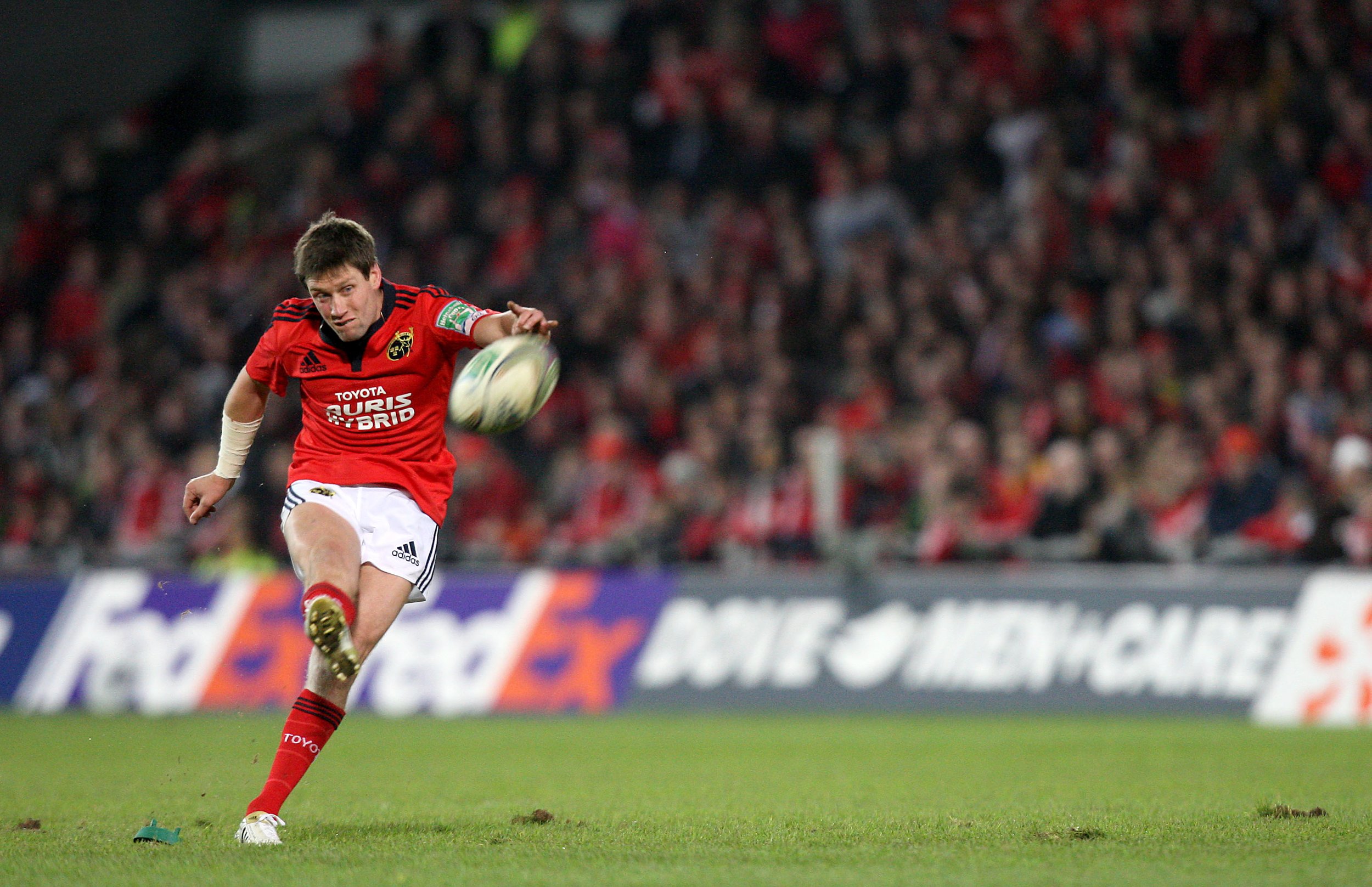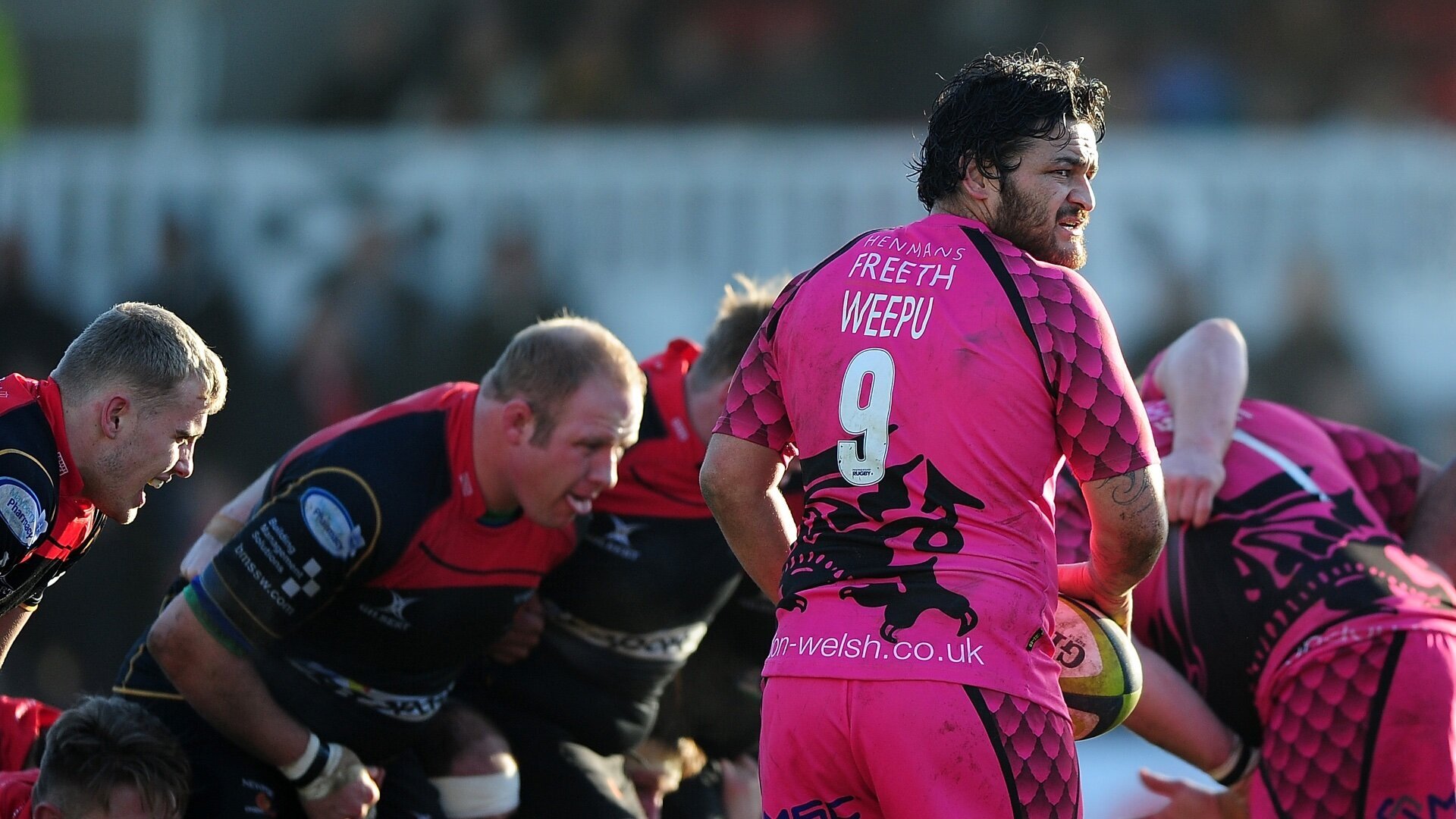Christophe Dominici: The man who defined French flair
Christophe Dominici, 67-cap France international and star of three Rugby World Cups, has died at the age of 48
Credit: Reuters
Every person who watched rugby has a moment or a time where their eyes were opened to what the game could look like.
Even the purists will have memories of moments of such skill or beauty that really made them think about what players were capable of.
Be it a stunning solo try, a deftly-executed handling move or even just a pass or kick that defies all logic.
For me personally - Christophe Dominici was very much one of those players.
The 67-cap winger was one of those players that made audiences sit up that much straighter. As part of one of the French teams that now serve as perfect examples of the flair the nation tends to produce, he lit up stadiums around the world.
After the announcement of his sudden death earlier today (November 24), I am left in a state of almost surprisingly strong sadness at the passing of one of the players that really showed me the beauty of the game he now plays in heaven.
Early career and flirtations with football
Dominici celebrates with head coach Bernard Laporte after France’s 2007 World Cup quarter-final win over New Zealand
Credit: Ross Setford/NZPA
As is so often the case with some of the game’s great talents, Dominici’s path into rugby was not guaranteed.
Born in Toulon in 1972 - with the city not being the rugby hub it is now - he found himself wooed by the round-ball cousin of rugby.
As a young man, he was being eyed up by football club AS Monaco and trained with them in his teenage years.
It is there where he reputedly formed a close friendship with future France captain and World Cup winner Lilian Thuram.
However, he eventually found his way to his hometown club where he played for four years before being snapped up by the mighty Stade Francais in 1997 following a strong run of form.
It was at Stade that he really came to the attention of the rugby public, winning the French league title in his first season and earning his debut international cap at the end of the campaign.
It didn’t take him long to make his mark on debut in the Stade de France in 1998.
He showed glimpses of his sublime balance and footwork to cut inside two England defenders during the Five Nations clash to finish off a sweeping French backline move and claim his first international try.
He would start France’s next game in the tournament, a 51-16 thumping of Scotland in Edinburgh, but would not register another score and was absent for the remaining two games of the tournament as Les Bleus claimed the Grand Slam.
However, diminutive winger Dominici had arrived and the best was yet to come.
1999: The greatest game?
There are many that will highlight the 1999 Rugby World Cup semi-final between France and New Zealand as possibly the greatest game rugby has yet seen.
Whether it is worthy of that title or not is up for discussion but one thing cannot be overstated - that it catapulted the career of Christophe Dominici.
Dominici had earned his place in the squad after more strong form for Stade and bagged a try in the 28-19 pool stage victory over Fiji.
After seeing off Argentina in the quarter-finals, France entered the last-four clash against the All Blacks as the underdogs with the looming prospect of Jonah Lomu in their sights after the Kiwis saw off Scotland.
Until after half-time, it looked very much like any French concerns were justified as New Zealand built up a 14-point lead after 46 minutes.
In the modern era, you don’t come back from 14 points down against the All Blacks. You just don’t.
Dominici had other ideas.
12 points from the boot of Christophe Lamaison pulled the French back to within two points on the hour mark, but there was still a feeling it was nothing more than a brief respite for the French.
No-one could have predicted what happened next.
In one of rugby’s iconic moments, France kicked over the top from the base of a midfield ruck turnover, the ball landing between the retreating New Zealand backs.
The ball took a wicked bounce and landed in the grasp of a flying Dominici, who showed the speed he had in abundance to absolutely torch Jeff Wilson and go over.
France were back from the dead and would go on to record a beyond famous 43-31 win.
A cynic may choose to point out his defensive misread that almost cost France and allowed the All Blacks a crucial try but, as they say, history remembers the winners.
Though he was part of a France team that were well beaten in the final by Australia, Dominici’s legacy was already secure.
Beyond: 2003 and 2007 (and the ‘Dominici Drop’)
Four years later, Dominici returned to the World Cup stage in 2003 and displayed once again the footwork, agility and flair that became his trademark.
He notched up four tries in the tournament, including a two-try performance against Fiji in their opening game that was overshadowed by Rupeni Caucaunibuca scoring one of the game’s great tries.
Dominici’s first score, however, quietly summed up everything that made him such a dangerous player - a potent mix of pace, timing and pure finishing ability.
Forward pass notwithstanding.
He added further tries in the pool stage win over Japan and the quarter-final demolition job they inflicted on Ireland, in which Dominici absolutely torched Shane Horgan for five of 43 unanswered French points that came before Ireland even got on the board.
While he was not able to prevent a Jonny Wilkinson masterclass knocking France out in the semi-finals, Dominici was one of the Frenchmen who came out with their reputation significantly enhanced.
One blot that sadly not even victory can keep off his copybook, however, is the famed ‘Dominici Drop’ against Italy in 2004.
Running through after a lovely jink through the middle defence of the Italians, Christophe went all too casual with the putdown and spilled the ball cold in the in-goal area.
Not many people live that kind of mistake down - just ask Juan Manuel Leguizamón. At least Dominici didn’t have the ignominy of Miles Harrison shouting “WHAT HAVE YOU DONE” over it for posterity.
However, redemption was found not only in his remarkable try-scoring ability but for his role in the other iconic defeat of New Zealand in which he was involved.
Having been in and out of the France setup in the build-up towards the 2007 World Cup, Dominici came back into the fold for the tournament and started the team’s opener in Paris against Argentina which Los Pumas famously won 17-12.
He also played in the group stage victory over Georgia, in which he scored twice.
He was named on the bench for the team’s quarter-final against New Zealand, where the Gallic heroes once again pulled the rabbit from the hat and dumped the desperate All Blacks from the tournament.
To be involved in not one but two era-defining victories is no mean feat for any player.
But that is not the reason I will remember him.
The memory I personally will always take away of Dominici was a man who showed the game at its best when he got it right.
This was a man whose best moments made my eyes starry as I gazed upon the peak of what rugby players could look like.
His ability to produce the spectacular at the drop of a hat made watching him an experience in its own right - not being able to look away or relax at any moment for fear you would miss a moment of magic.
That is the legacy Christophe Dominici leaves behind after his sudden and tragic passing at the age of 48.
Domi was a man who lit up the rugby world and gave us a moment that no rugby fan will ever truly forget only to do it all again eight years later.
After his retirement from the national side in 2007, he emotionally said “you must know when to turn the page”
Dominici’s page turned far too early this time but he remains one of our sports greatest characters.
He may not have been the first name on your team sheet, he may not have been the man you would call on to defend for your life but if you wanted plain and simple magic - you need have looked no further.















